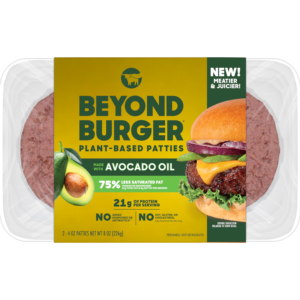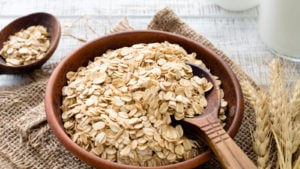Plant-based food stocks to sell might be your ticket to dodging market volatility.
The vegan industry is in decline, and industry trends suggest caution. 2023 was another year of dropping sales for plant-based meat and seafood, with The Good Food Institute reporting a 1.2% decline in retail sales to $8.1 billion. Hence, despite efforts to brand these products as healthier and more sustainable, the market seems unreceptive at this time.
Moreover, reports show that 95% of plant-based product consumers also eat conventional meat. Therefore, the current scenario for plant-based food stocks is precarious, with companies scrambling to bridge the gap in quality and lower prices.
That said, here are three struggling plant-based food stocks to sell that offer investors little to no upside potential. These businesses have yet to gain significant traction and continue to buckle under the pressures exerted by the current economic environment.
Beyond Meat (BYND)

Beyond Meat (NASDAQ:BYND) was once a darling of the vegan boom but now finds itself down in the doldrums. BYND offers little to no stability without meaningful growth catalysts for its investors. The stock has plummeted from its all-time high of $234.90 in July 2019 and is currently trading at just $6.80.
The firm has recorded negative sales growth for the past eight consecutive quarters, including a concerning 18% drop in the first-quarter (Q1) alone. Additionally, its net income margin has nosedived to an alarming negative 103%, a major deterioration from its five-year average.
Furthermore, its CEO recently admitted to declining demand for key products such as the soon-to-be-discontinued Beyond Meat Jerky. While retail traders briefly sparked interest in the stock, such moves are incredibly speculative. Hence, Wall Street analysts assign the stock a ‘moderate sell’ rating, expecting an 18% drop from its current price.
Hain Celestial (HAIN)

Hain Celestial (NASDAQ:HAIN) is another speculative vegan play specializing in producing and selling organic and natural products.
Like its peers, Hain’s financial trajectory has left a lot to be desired. Over the past 10 quarters, the company has beaten revenue estimates on just one occasion, revealing a troubling pattern of underperformance.
The company recently admitted failing to execute its growth strategy, particularly with its Terra snacks business and streamlining its broad personal care segment. Terra’s heavy dependence on club store sales channels indicates a dire need for wider distribution strategies.
Despite some progress in reducing debt, Hain’s net leverage ratio remains remarkably high, posing questions about its financial flexibility. Hain Celestial stands on shaky ground with a financial strength rating of just 5 out of 10 from Gurufocus and an Altman Z score indicating distress. Hence, investing in HAIN stock offers little to no upside potential.
Oatly (OTLY)

Oatly (NASDAQ:OTLY) is known for its broad product portfolio, which covers everything from oat milk to trendy creamers, showcasing an array of oat-based delights. Despite its product variety, its performances have been lackluster, and its financial health raises major concerns. Its cash runway is remarkably short, with a negative $68 million in trailing-twelve-month (TTM) free cash flows.
Its balance sheet continues to be weighed down by consistent losses, including its most recent net loss of $45.8 million in Q1. Moreover, its progress has been overshadowed by a dwindling cash reserve, which decreased to $209 million from $249.3 million every quarter.
Market competition is another major problem for Oatly, as it continues to face competition from supermarket generics and other oat-based brands. Additionally, supply chain inefficiencies and an unreliable timeline for reaching profitability suggest that Oatly’s journey toward financial stability will likely be rocky from here on.
On the date of publication, Muslim Farooque did not have (either directly or indirectly) any positions in the securities mentioned in this article. The opinions expressed in this article are those of the writer, subject to the InvestorPlace.com Publishing Guidelines.
On the date of publication, the responsible editor did not have (either directly or indirectly) any positions in the securities mentioned in this article.
